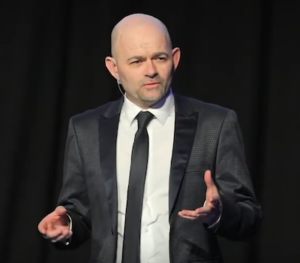 During our travels over the last few weeks I have been assiduously avoiding all New Zealand media and political commentary. We are such a binary thinking and inwards looking nation, it is nice to have a break from it. But I couldn’t avoid seeing the recent remarks from Mayor Brown and Peter Gluckman both alluding to Auckland’s greatness as a “centre for innovation” whilst lobbying (of course) for government support.
During our travels over the last few weeks I have been assiduously avoiding all New Zealand media and political commentary. We are such a binary thinking and inwards looking nation, it is nice to have a break from it. But I couldn’t avoid seeing the recent remarks from Mayor Brown and Peter Gluckman both alluding to Auckland’s greatness as a “centre for innovation” whilst lobbying (of course) for government support.
Yes the city is home to some amazing tech companies, clever people and is the closest thing we’ve got to a global city. Yes, innovation (in the form of patents) has traditionally been greatest in cities with large populations, agglomerations of industries and multiple high class education facilities. But the world is changing. Digital communications plus the rise of AI and technologies such as blockchain mean you can also build hugely valuable companies with a small distributed team. I think this is something that is often lost in the conversation because we tend to focus on tangible products like rockets or vegan ice-cream.
Here in Europe the EU is actively looking at how to get more innovation happening in the regions, away from noisy crowded cities. This is proving difficult because entrepreneurs tend to cluster where capital is more abundant, even if it means sacrificing lifestyle for a period of time. Paris, Barcelona, London and Berlin are currently the main foci. But will this change as distributed forms of capital raising become more established? Would a distributed innovation approach make more sense?
I mentioned binary thinking earlier. It’s something that holds us back. The concept that economic activity is a zero sum game for example. There always has to be a regional winner or loser. Or equity for one race or social group being at the expense of another. Outside of the current American administration warped mindset perhaps, it’s not how the real world actually operates.
Above is an image from Clos Luce, Amboise, France where Leonardo da Vinci spent the last years of his life. It was certainly a base for innovative thinking of the day. But even then, he succeeded through working with remote teams of talent on projects commissioned from all over Europe – with the enduring patronage of King Francois I. An early form of distributed innovation model.
[ This article was originally published on my LinkedIn channel ]
Paul Spence is a commentator, researcher and a part-time university commerce and management teaching assistant. A previous co-founder of a successful New Zealand based global technology venture, co-founder and director of Creative Forest, principal at GeniusNet Research & GeniusReFi and a startup advisor. You can follow Paul on Twitter/X @GeniusNet

 My apologies for the radio silence lately. It has been a huge year personally and professionally with a lot of change, many challenges and some big plans finally starting to coalesce. One aspect of this has been our efforts bringing Genius ReFi to life.
My apologies for the radio silence lately. It has been a huge year personally and professionally with a lot of change, many challenges and some big plans finally starting to coalesce. One aspect of this has been our efforts bringing Genius ReFi to life. New Zealand faces a polycrisis due to decades of under-investment in public infrastructure. Indicative of this malaise are multiple
New Zealand faces a polycrisis due to decades of under-investment in public infrastructure. Indicative of this malaise are multiple 


 I was in a community call today contributing to the good work of the NZ Startup Council. It wasn’t long before somebody popped the “diversity question” into the conversation, complaining that women, migrants and people of colour can’t get help with their startups and do not get a fair hearing from investors in New Zealand. If that is true, I want to do something about it!
I was in a community call today contributing to the good work of the NZ Startup Council. It wasn’t long before somebody popped the “diversity question” into the conversation, complaining that women, migrants and people of colour can’t get help with their startups and do not get a fair hearing from investors in New Zealand. If that is true, I want to do something about it! The state government of Victoria has announced the first investments from a $2 billion fund for the commercialisation of research, science and technology. Breakthrough Victoria will focus on life sciences, agri-food, cleantech and digital technologies in a push to reboot the state’s post-Covid economy. The package includes $100 million for co-funding
The state government of Victoria has announced the first investments from a $2 billion fund for the commercialisation of research, science and technology. Breakthrough Victoria will focus on life sciences, agri-food, cleantech and digital technologies in a push to reboot the state’s post-Covid economy. The package includes $100 million for co-funding  This week I conducted a small experiment. I really want to play my part to reduce emissions, so I’m in the market for a plug-in hybrid electric vehicle (PHEV). I’ve also been doing a couple of papers at our local university for interest recently and have just completed a marketing course at Masters level. So I’m up to speed with marketing tactics and sneaky selling strategies. This is where the fun begins.
This week I conducted a small experiment. I really want to play my part to reduce emissions, so I’m in the market for a plug-in hybrid electric vehicle (PHEV). I’ve also been doing a couple of papers at our local university for interest recently and have just completed a marketing course at Masters level. So I’m up to speed with marketing tactics and sneaky selling strategies. This is where the fun begins.